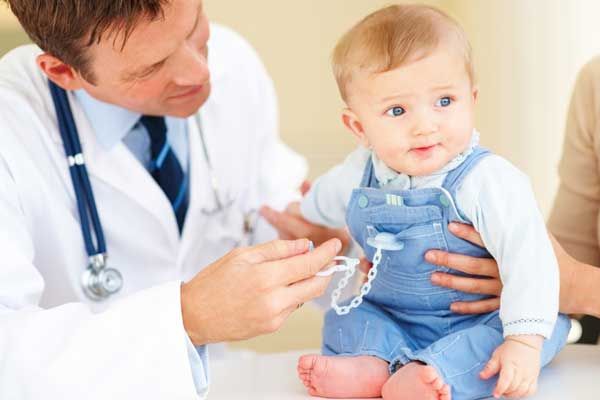Most Parents Don't Always Follow Doctors' Orders

Two-thirds of parents say they don't always follow the advice they get from their child's doctor, according to a new poll.
The findings showed that 56 percent of parents said they follow the advice they’re given most of the time, while 13 percent said they follow it only occasionally, according to the findings from the University of Michigan C.S. Mott Children’s Hospital National Poll on Children’s Health.
"Parents need to ask for clarification if they are unsure about what the provider is saying, or why it's important," said Dr. Matthew Davis, director of the poll. Doctors should use clear language, ask parents about their concerns, and give practical examples of what works with children, he said.
Parents were asked about which topics they were most and least likely to follow advice.
Among parents who said they follow advice only occasionally, they were most likely to heed recommendations on nutrition, dentist visits and using car seats.
But 40 percent of parents in this group said they didn't follow advice on discipline, 18 percent said they didn't follow it when it came to sleep recommendations, and 13 percent didn't follow advice about watching TV.
Whether parents followed advice was linked with how highly they rated their doctor's quality of care. Among parents who rated their child’s provider as excellent on "talking to me in a way I can understand," just 6 percent said they follow provider advice only occasionally, whereas 46 percent of parents who rated their doctor as good/fair/poor said the same.
Sign up for the Live Science daily newsletter now
Get the world’s most fascinating discoveries delivered straight to your inbox.
Following advice was also linked with income — parents from lower-income households were more than twice as likely to say they follow provider advice only occasionally (17 percent), compared to parents from higher-income households (8 percent).
By not heeding advice consistently, parents may be putting kids at risk for long-lasting health concerns, said Sarah J. Clark, associate director of the poll.
For instance, allowing the kids to drink too many sugar-sweetened beverages and watch too much TV have been linked with childhood obesity. Putting babies to sleep on their stomach has been linked with an increased risk of Sudden Infant Death Syndrome (SIDS).
The poll included a national sample of parents of children up to age 8.
Pass it on: Majority of parents don't always follow their doctors' advice.
This story was provided by MyHealthNewsDaily, a sister site to LiveScience. Follow Karen Rowan @karenjrowan. Follow MyHealthNewsDaily @MyHealth_MHND, Facebook & Google+.












